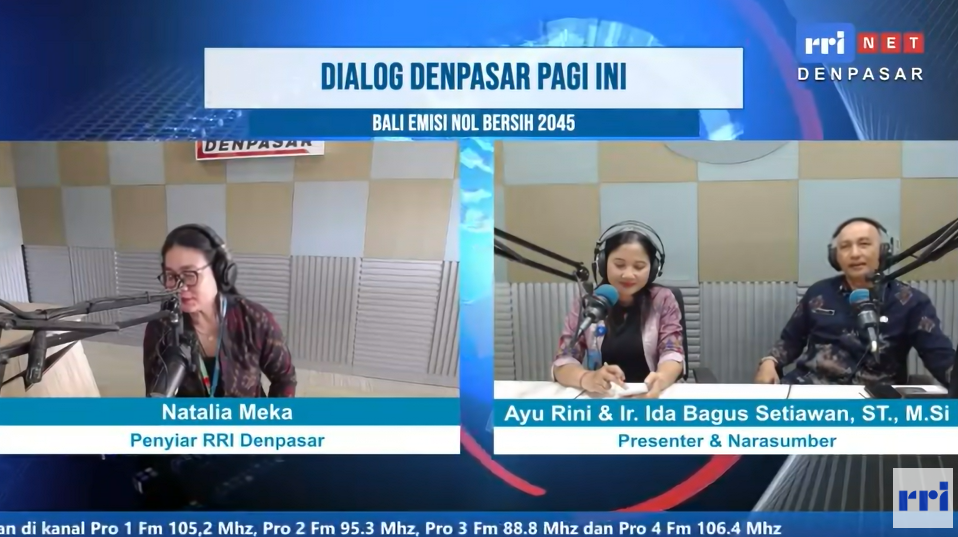Denpasar, August 13, 2024—One year has passed since the Bali Provincial Government officially declared the Bali Action Plan Towards Zero Net Emissions (NZE) Bali 2045 on August 4, 2023. Various efforts have been made to realize the initiative’s vision, but challenges remain.
Ida Bagus Setiawan, Head of Manpower and Energy and Mineral Resources Agency at the Provincial Government of Bali, revealed that the energy and transportation sectors are the most significant emission contributors in Bali. To achieve the NZE 2045 target, decarbonization measures in both sectors are optimized by prioritizing the use of renewable energy. However, Ida Bagus Setiawan also highlighted the challenges faced in the decarbonization process, especially regarding sustainability.
“To overcome these challenges, we have pioneered cooperation with the Ministry of Energy and Mineral Resources (MEMR) and the private sector. This cooperation includes free training for the community, such as training in rooftop solar power installation and electric vehicle conservation. This effort is made so that the community is not only the object, but also the actor in sustainability,” said Ida Bagus Setiawan in the Denpasar Morning Dialogue on Radio Republik Indonesia (RRI) Denpasar on Tuesday, August 13, 2024.
Ida Bagus Setiawan believes that human resources in Indonesia, especially Bali, have great potential to encourage decarbonization. Support in the form of education and training from the government and private sector is expected to increase the capabilities of the Balinese people. However, central government intervention is still essential to make Bali a pilot area.
Alvin Putra Sisdwinugraha, an Electricity System and Renewable Energy Analyst from the Institute for Essential Services Reform (IESR) explained that the local government’s role is crucial in promoting the Bali NZE 2045 initiative. Alvin emphasized that local governments must have a qualified understanding and knowledge of the field to overcome various obstacles.
“To realize Bali NZE 2045, we need to have a pilot. Therefore, the journey towards NZE in Bali is entering a new phase with a focus on the Nusa Penida electricity system of 100 percent renewable energy by 2030. With 100 percent renewable energy, Nusa Penida can also support the sustainable tourism sector,” Alvin said.
Based on a study by IESR and Udayana’s Center of Excellence Community Based Renewable Energy (CORE), the renewable energy potential in Nusa Penida reaches more than 3,219 megawatts (MW). This potential consists of 3,200 MW of ground-mounted solar PV, 11 MW of rooftop solar PV, and 8 MW of biomass, not including the potential for wind energy, ocean currents, and biodiesel. Meanwhile, to overcome the variable nature of renewable energy available at certain times and influenced by weather conditions, Nusa Penida has a pumped hydropower storage potential of up to 22.7 MW.
“With the various efforts and initiatives that have been made, Bali shows a strong commitment towards NZE 2045. While challenges remain, collaboration between the government, private sector, and the community is key to achieving the vision of a Net Zero Emission Bali. One year on from the declaration, Bali continues to move forward towards a more sustainable future,” Alvin said.

